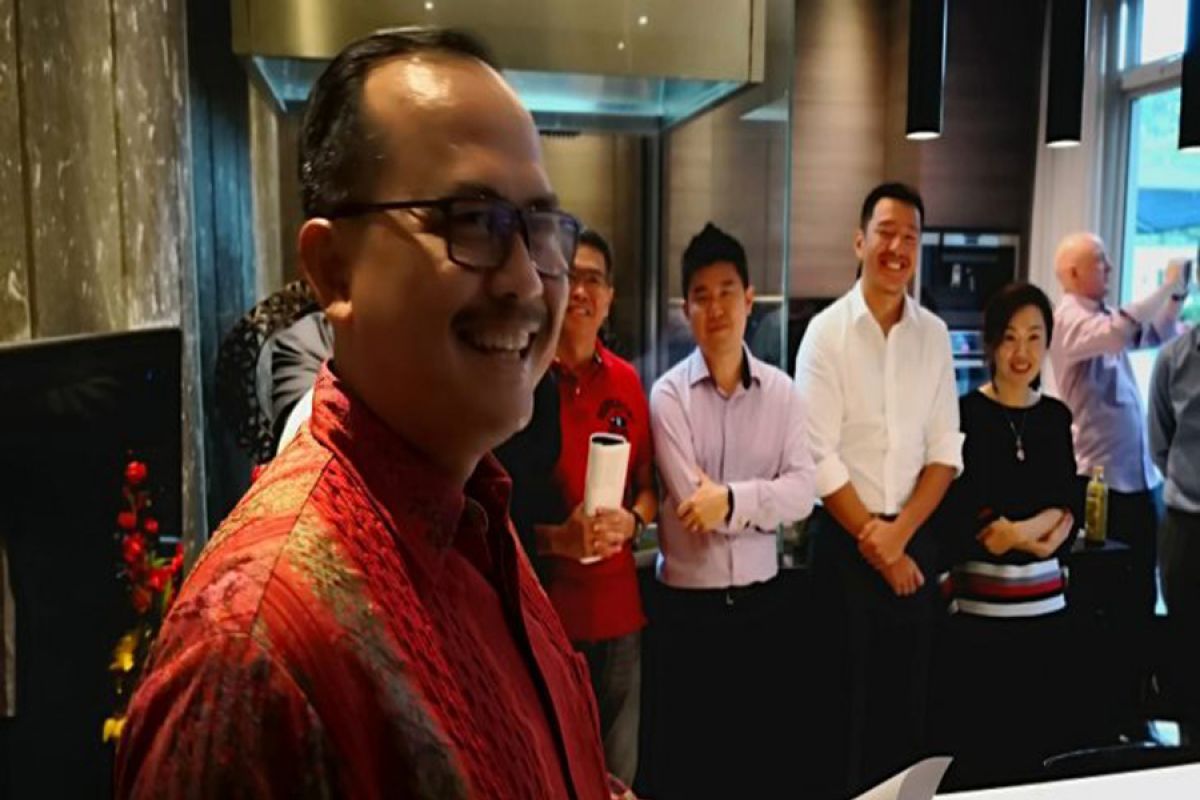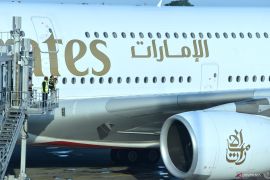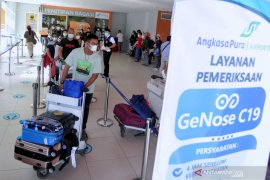Jakarta, March 9 (ANTARA) - Indonesian Ambassador to Singapore Ngurah Swajaya called on students of the University of Diponegoro to be optimistic and confident in facing digital disruption.
The ambassador spoke during a public lecture at the University of Diponegoro (Undip), Semarang, Central Java, according to a statement from the Indonesian Embassy in Singapore that Antara received here on Saturday.
The activity, attended by some 150 students, was opened directly by Vice President for Academic and Student Affairs Prof. Dr Ir. Muhammad Zainuri, DEA, of the University Of Diponegoro.
Ambassador Swajaya urged millennials to look at the challenges of the global economy, including disruption through the digitalization of the economy as part of the global transformation phenomenon that must be faced with optimism, confidence, and hard work.
Amid the continuing uncertainty of the global economy which, among others, is overshadowed by the threat of trade wars, Indonesia`s younger generation must address this matter through hard work to improve their skills and competitiveness but at the same time also to understand and utilize the advantages that Indonesia has.
With economic growth of above five percent and increasing foreign investment and political and security stability, Indonesia has become one of the attractive destinations for foreign investment.
"Aspirations from businesses and other stakeholders in Singapore are growing, many of them praising the process of political transformation, infrastructure development, ease of doing business, and Indonesia`s current economic potential, including the digital economy," he explained.
"Singapore investors` trust and attractiveness to invest in Indonesia is very high, and the current trend indicates that Indonesia is still the most attractive destination for new investments and expansion of their investments. Indonesia is also an attractive destination for the digital economy, especially the development of start-up businesses," he noted.
According to Ambassador Swajaya, Indonesia`s digital economic potential is currently still the largest in the ASEAN, with the presence of four tech unicorns from only around seven in the ASEAN.
Indonesian young talents are the main drivers for the growth of four unicorns from Indonesia.
In addition, he noted, the strong commitment of the Indonesian Government to improve conducive conditions, especially the "ease of doing business "and ecosystems that support investment, are considered as being important.
With this potential, Indonesia can become the main driver for business development in the ASEAN.
With a promising market, followed by good human resource growth and increasingly favorable regulations for businesspersons, the cooperation between Indonesia and Singapore can play a role in exploiting the ASEAN market potential, which is thrice the size of the Indonesian market, he noted.
"This makes Indonesia as one of the countries in ASEAN that is very attractive to invest," Swajaya noted.
Total investment realization from Singapore in Indonesia in 2018 had increased by 9.1 percent, or US$9.2 billion, some 30 percent of the total foreign investment, due to which Singapore has remained Indonesia`s biggest investor for five consecutive years.
Indonesia-Singapore relations in future hold good prospects to continue to grow if a more positive perception were to be improved among the people of both countries, especially through increasing interaction among members of the younger generation, especially to collaborate in a mutually beneficial cooperation.
A good understanding of the young generation of Indonesia, especially among academics regarding the growing trend of transformation in the world and their optimism and confidence in seeking opportunities from this transformation process, including in the digital economy, will provide added value to continue to develop Indonesia`s potential to be one of the 10 largest economies in the world.
Ambassador Swajaya noted that members of the young generation of both nations are expected to capitalize on the momentum of five decades of diplomatic relations between the two countries by together building a new paradigm of mutually beneficial cooperation.
Editor: Fardah Assegaf










